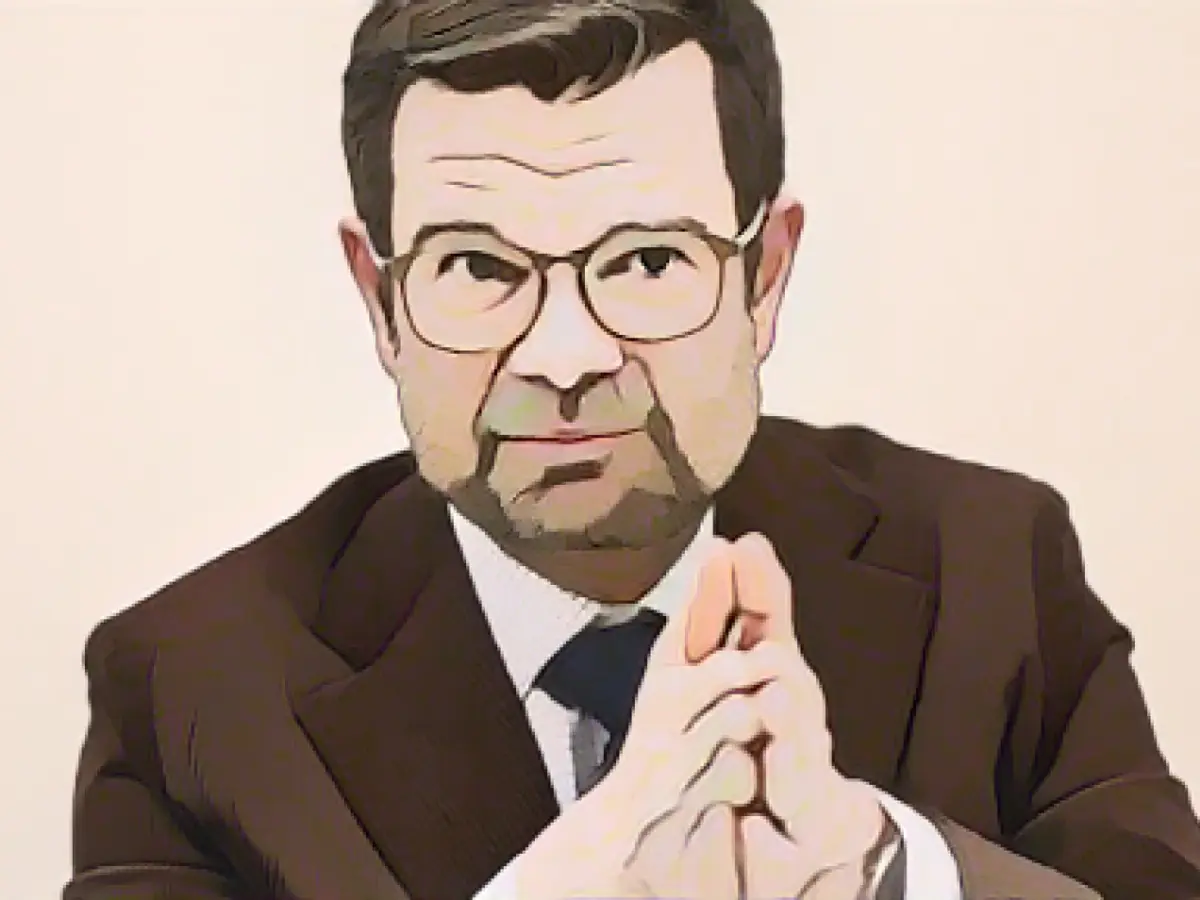Justice - Bushman does not believe in a general ban on buying sex
Federal Minister of Justice Marco Buschmann does not believe in a ban on buying sex, as Sweden, France and some other European countries have introduced.
When asked whether he was in favor of punishing clients, the FDP politician replied to the German Press Agency: "I think the most important thing is that any use of coercion against women must be stopped, so to speak, including by means of criminal law. There are instruments for this in Germany that must also be applied. This should be the focus.
Part of a planned reform of the penal code is the deletion of a provision that prohibits prostitution in restricted areas. The relevant paragraph consists of just one long sentence: "Anyone who persistently contravenes a prohibition issued by statutory order to engage in prostitution in certain places at all or at certain times of day shall be punished with imprisonment of up to six months or a fine of up to one hundred and eighty daily rates."
Restricted area violation may no longer be a criminal offense
If Buschmann's plan were to be implemented as currently planned, the violation of restricted area ordinances could still be punished as an administrative offense. However, it would then no longer be a criminal offense.
"It is clear that such restricted area orders can still be issued," said Buschmann. He explained: "If we imagine that there are also areas in municipalities that form, if you like, the good parlor or that there are areas such as schools or kindergartens, that this order can then be used in an emergency, I think it makes sense in the toolbox." And if there is a restricted area in a municipality, it makes sense to enforce it.
Since 2002, prostitution has no longer been immoral in Germany and is considered a normal trade. The red-green coalition at the time wanted to improve the legal and social situation of prostitutes with the Prostitution Act. However, many experts believe that the opposite has happened. Instead of protecting the victims, the position of brothel operators, the sex industry and clients was strengthened. In 2017, the Prostitutes Protection Act was introduced. Above all, it sets out trade law requirements: Brothels now require an operating license, prostitutes are obliged to register their activities and attend health consultations.
Draft of the reform due in 2024
At the end of November, Buschmann presented key points for the planned reform of the Criminal Code, which is intended to decriminalize fare evasion, among other things. According to him, a concrete draft can probably be expected in the first half of 2024.
"For many years, we had only one direction in criminal law policy: faster, higher, further," says the FDP politician. The question of which old laws were still necessary was never asked. The reform is now about "either deleting or revising many old, outdated regulations from the Criminal Code".
In September, the European Parliament passed a resolution in which the so-called Nordic model, in which clients have to fear punishment but prostitutes do not, is assessed positively. The resolution criticizes the differing legislation on these issues in the member states of the European Union, as this encourages human trafficking. In Germany, the CDU/CSU parliamentary group, among others, has backed this proposal.
"The deletion reduces the protection of young people and the general public from harassment intended by the provision, while at the same time the women concerned are further sanctioned by the law on administrative offences," criticized Andrea Lindholz, deputy chairwoman of the CDU/CSU parliamentary group. The CSU politician believes that a consistent ban on buying sex would be better. "Germany has become the brothel of Europe, women are exploited under the most adverse conditions." Human trafficking and forced prostitution have reached new dimensions. Organized crime dominates the scene. The German state must not tolerate this.
Read also:
- Year of climate records: extreme is the new normal
- Precautionary arrests show Islamist terror threat
- UN vote urges Israel to ceasefire
- SPD rules out budget resolution before the end of the year
- The Swedish and French approaches, which involve banning the purchase of sex, are not endorsed by German Federal Minister of Justice Marco Buschmann.
- In Germany, Buschmann supports stopping any form of coercion against women in the context of prostitution, utilizing existing criminal law instruments.
- The proposed reform of the German penal code includes removing a provision that restricts prostitution in specific areas.
- If implemented as planned, the violation of restricted area ordinances would no longer be considered a criminal offense, but rather an administrative one.
- Buschmann acknowledged that restricted area orders could still be enforced in municipalities, such as in areas surrounding schools or kindergartens.
- Prostitution in Germany has been legal since 2002, and the Prostitution Act aimed to improve the legal and social situation of prostitutes; however, some experts believe it has only benefited the sex industry.
- The Progressive Alliance (FDP) politician Buschmann plans to present a draft of the reform of the Criminal Code, which aims to decriminalize fare evasion, among other objectives, in the first half of 2024.
Source: www.stern.de








